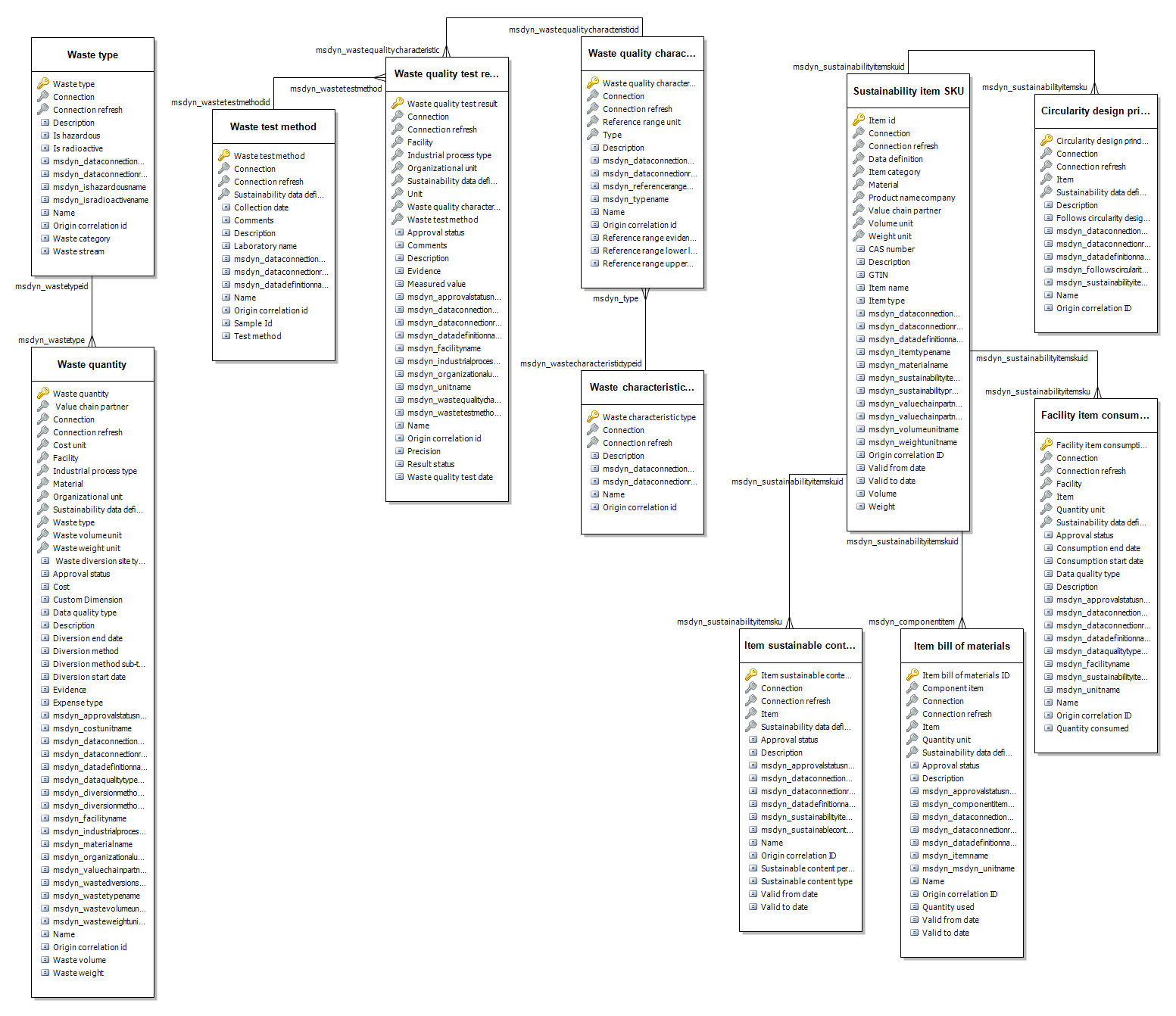Microsoft Cloud for Sustainability waste data model (preview) overview
Important
Some or all of this functionality is available as part of a preview release. The content and the functionality are subject to change.
The Microsoft Cloud for Sustainability waste data model (preview) helps you to unify, standardize, and prepare waste sustainability data. It helps you to track and achieve your organization's net zero waste sustainability goals. The Cloud for Sustainability waste data model (preview) is part of the Cloud for Sustainability data model. It provides the schema required for storing and integrating waste quality and quantity measurement data with sustainability waste reference data. The schema makes waste sustainability data available for use cases that can include:
- Regulatory disclosures for waste generated and disposed
- Compliance monitoring of hazardous/radioactive waste quality characteristics
The Cloud for Sustainability waste data model (preview) consists of three categories of entities that support storing waste quantity, quality characteristics, and sustainability reference data. The schema also shares common entities, such as industrial process type, facility, and organization information with the Cloud for Sustainability data model.
The waste quantity-related entities store data on the waste quantity weight or volume measurements, such as waste disposed to landfill or recycled. The data model also stores sustainability reference data, such as information on the waste type and the waste material, to add context to the quantity measurements. The schema links the sustainability reference data with the quantity measurements to prepare it for addressing different use cases. For example, the schema can help you determine the weight of waste disposed from your facilities, categorized by disposal method for waste sustainability disclosures.
The entities for waste quality data store measurements related to the chemical or hazardous properties of the waste disposed. The schema also stores sustainability reference data, such as sampling procedures, testing methods, and the metadata for the measured properties. The schema links the sustainability reference data with the quality measurements to prepare it for addressing use cases like monitoring the level of contaminants or hazardous chemicals in the waste to ensure they are within permissible limits according to regulations.
You can use the Cloud for Sustainability waste data model (preview) in various scenarios, including the following examples:
Waste sustainability disclosures: Report the quantity of waste disposed categorized by the waste type and disposal method, based on waste sustainability disclosure standards.
Waste quality characteristics monitoring: Track quality characteristics of waste disposed from samples collected in your organization. Ensure the hazardous contaminant level is within regulatory compliance limits.
Entity relationship diagram
Select the magnifying glass icon at the bottom right of the diagram to zoom in.
Deploy the data model
To automatically generate and deploy the schema to your Dataverse environment, follow these steps:
In the left navigation, select Sustainability.
On the Cloud for Sustainability waste data model (preview) tile, select Add.
Select the Deploy button and continue with the deployment.
For more information about deploying Microsoft Cloud for Sustainability solutions, go to Set up and configure Microsoft Cloud for Sustainability.
Related information
- Cloud for Sustainability waste data model (preview) entity reference
- Required attributes for the Microsoft Cloud for Sustainability waste data model (preview)

